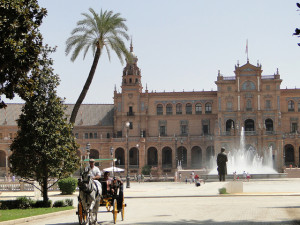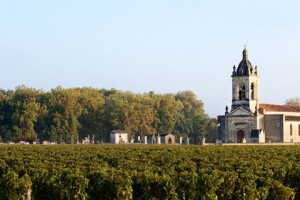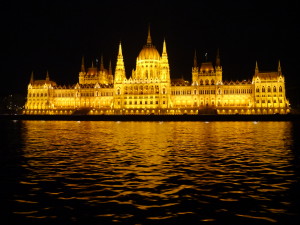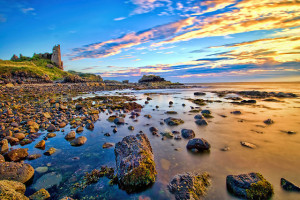Europe
The much-beloved film The Sound of Music, which was released in 1965 and won the Oscar for Best Picture that year, did most of its location shooting in and around the city of Salzburg, Austria.
It’s hard to imagine many baby boomers who don’t know the (somewhat fictionalized) story of how the musically inclined von Trapps — composed of would-be-nun-turned-nanny Maria (Julie Andrews), Baron von Trapp (Christopher Plummer), and a parcel of cute kids who could belt out catchy tunes like “Do-Re-Mi” — became a family and fled the Nazis in Austria for safe haven elsewhere.
After hiking over the mountains (in the movie, at least), they eventually made their way to the United States and became known as the Trapp Family Singers.
The gorgeous Austrian scenery, the infectious music by Rodgers and Hammerstein, Julie Andrews twirling on a mountaintop in the… Continue reading
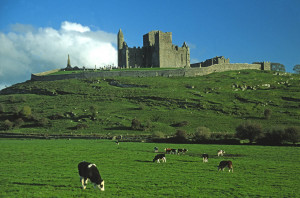
Ireland’s Cashel Rock, also known as St. Patrick’s Rock, in County Tipperary, Ireland. Photo by Dennis Cox/WorldViews.
I admit I was a little surprised several years ago when I toured the entire island of Ireland and discovered that St. Patrick — the patron saint of Ireland and largely credited with bringing Christianity to Ireland — actually did much of his missionary work and is reputedly buried in County Down, which is now part of Northern Ireland, which is part of the United Kingdom.
It was just over two decades ago (April 1998) that “The Troubles,” as they were called — an often violent class-related and sectarian three-decade conflict in Northern Ireland between those who wanted to remain in the UK (mostly Protestants) and those who wanted to break away and join the Republic of Ireland (mostly Catholics) — ended in the Good Friday Agreement to settle the issue peacefully.
Because… Continue reading
Last of a 3-part series.
In our first post in this series, we began our quick guide to the 12 most popular European cruising rivers, starting with the Danube, Rhine, Seine, and the Volga and other Russian waterways — probably the best known of the top cruising rivers in Europe.
In our second post, we’ took a look at four more rivers (actually five rivers and one canal) ranging from France to Portugal, Germany and the Czech Republic to Sweden.
In this third post, we’ll complete the top 12 list with cruising rivers in Spain, Germany-Luxembourg, Italy, and, once again, France.
Spain’s Guadalquivir
A Guadalquivir cruise offers one of the most pleasant ways to explore Andalusia – Spain’s southernmost province and site of some of the country’s most fabled cities. The river itself, though one of… Continue reading
Part 2 of a 3-part series
In our last post, we began our quick guide to European cruising rivers, starting with the Danube, Rhine, Seine, and the Volga and other Russian waterways — probably the best known of the top 12 cruising rivers in Europe.
In this post, we’ll take a look at four more rivers — well, actually five rivers and one canal — ranging from France to Portugal, Germany and the Czech Republic to Sweden.
The Rivers of Bordeaux: the Dordogne, Garonne, and Gironde
You can get an intimate look at Bordeaux, perhaps the world’s premier red-wine-producing region, on this three-river cruise that begins in the city of Bordeaux itself. Bordeaux, situated along the Garonne River — which connects to the Bay of Biscay via the Gironde River along France’s western coast — is a treasure trove of architectural… Continue reading
First in a three-part series.
While all European rivers offer memorable scenery and an alluring array of port stops ranging from big cities to atmospheric villages, they also differ from each other in significant ways. Here’s a quick guide to help you decide which river cruise is right for you. (Keep in mind that itineraries may vary a bit among the different cruise lines.)
The Danube
>Europe’s second longest river is second to none in romance, scenic beauty and high culture. Most one-week Danube itineraries run between Nuremberg, Germany, and Budapest, Hungary, with stops in Vienna, Austria, and a voyage through Austria’s scenic Wachau Valley along the way. The Wachau Valley features the town of Dȕrnstein – where Richard the Lionhearted was imprisoned during the Crusades – and the nearby town of Melk, home to a… Continue reading
Regardless of your feelings toward last year’s “nae” vote on breaking away from the UK, Scotland’s spirit of independence, natural beauty, and rich enduring cultural heritage make it a remarkable place to visit any time of year. (Yes, we know it gets a wee bit chilly and damp in the off season, but that just adds to its atmospheric charms.)
Baby boomers will have heard about many of these attractions most of their lives (Harry Potter sites and Edinburgh Festival Fringe excepted — but it’s always good to experience something new).
Here are my favorite reasons for booking a trip to this nation of 5.3 million people that has less land than South Carolina — but boasts an inordinate number of claims to fame:
- Edinburgh and Its Castle
One of Europe’s most architecturally stunning capitals, Edinburgh lies a mere 332 miles… Continue reading
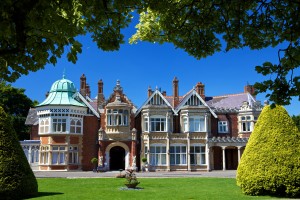
Bletchley Park Mansion, site of The Imitation Game. Photo by Shaun Armstrong, courtesy of VisitBritain.
British films were nominated 21 times in several Academy Award categories this year, including two for Best Picture, two for Best Actor, one for Best Actress, one for Best Director, and two for Best Supporting Actress.
Two were winners in major categories: Eddie Redmayne won the Oscar for Best Actor for his portrayal of Stephen Hawking in The Theory of Everything, while Graham Moore won for Best Adapted Screenplay for The Imitation Game.
If you’re headed to England this year, you can visit a number of location settings for these films. Here’s where:
The Imitation Game
The inspiring but ultimately tragic life story of brilliant mathematician and codebreaker Alan Turing is the focal point of this historical drama set in the Victorian estate of Bletchley Park, Buckinghamshire, used as the unlikely… Continue reading
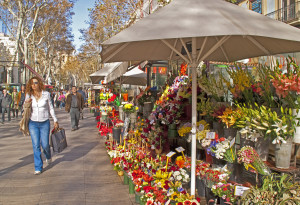
The famous walking area of Las Ramblas in Barcelona, Spain: get more bang for your bucks. Photo by Dennis Cox/WorldViews
I just returned last night from a week in Europe (more about that in subsequent posts) and found my euros going much further than on my previous trips there.
And I don’t mean going further out of my pocket, but into my pocket. Spain, which I left yesterday morning, was dirt cheap. My wallet was still stuffed with euro notes when I flew out.
A year ago, one U.S. dollar would get you about .73 euros to spend when traveling in Europe. Looked at another way, Americans would have to ante up 1.364 U.S. dollars to get one euro in exchange.
So for every admission or food item or souvenir costing 3 euros, Americans would have to pay the equivalent of $4.
Now, as of this writing, one U.S. dollar… Continue reading


